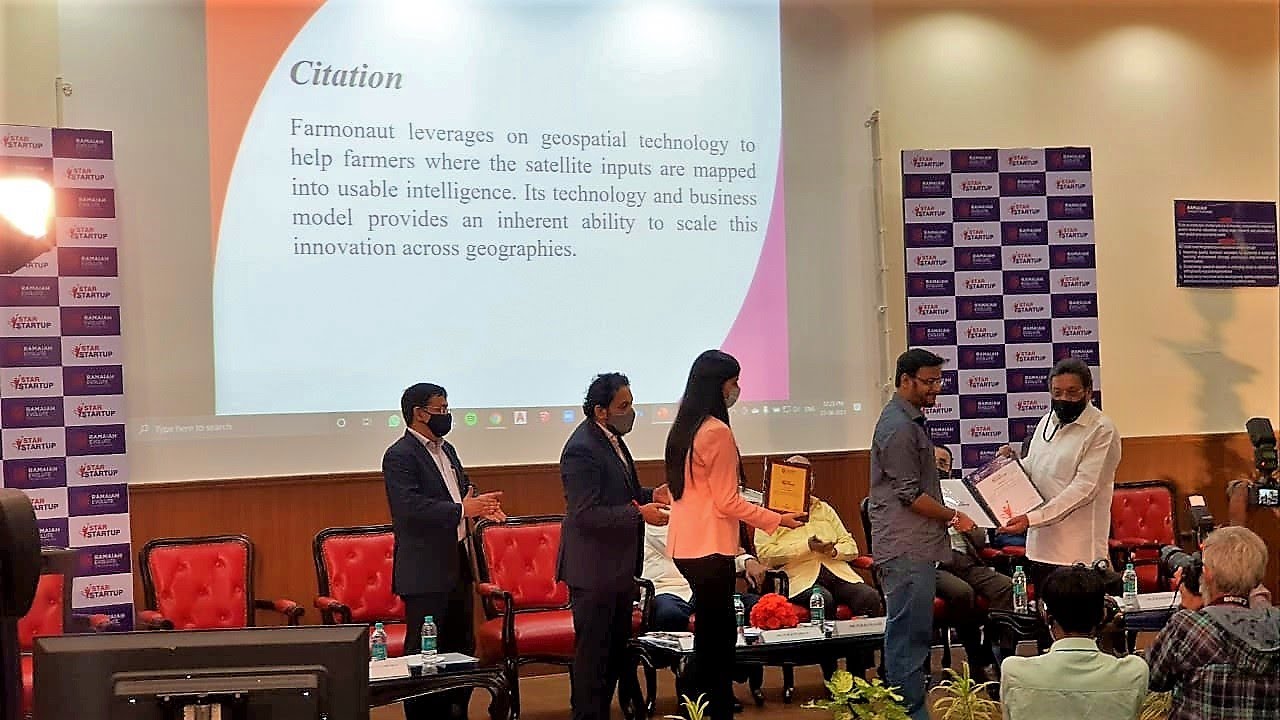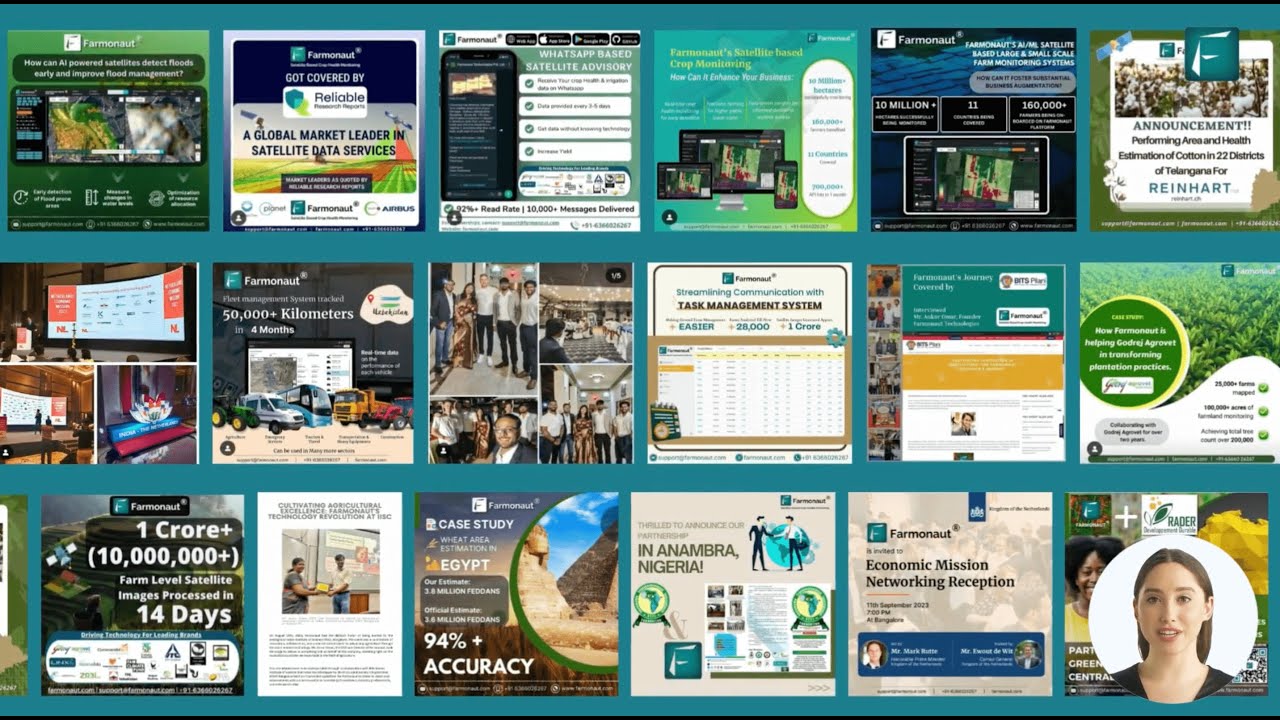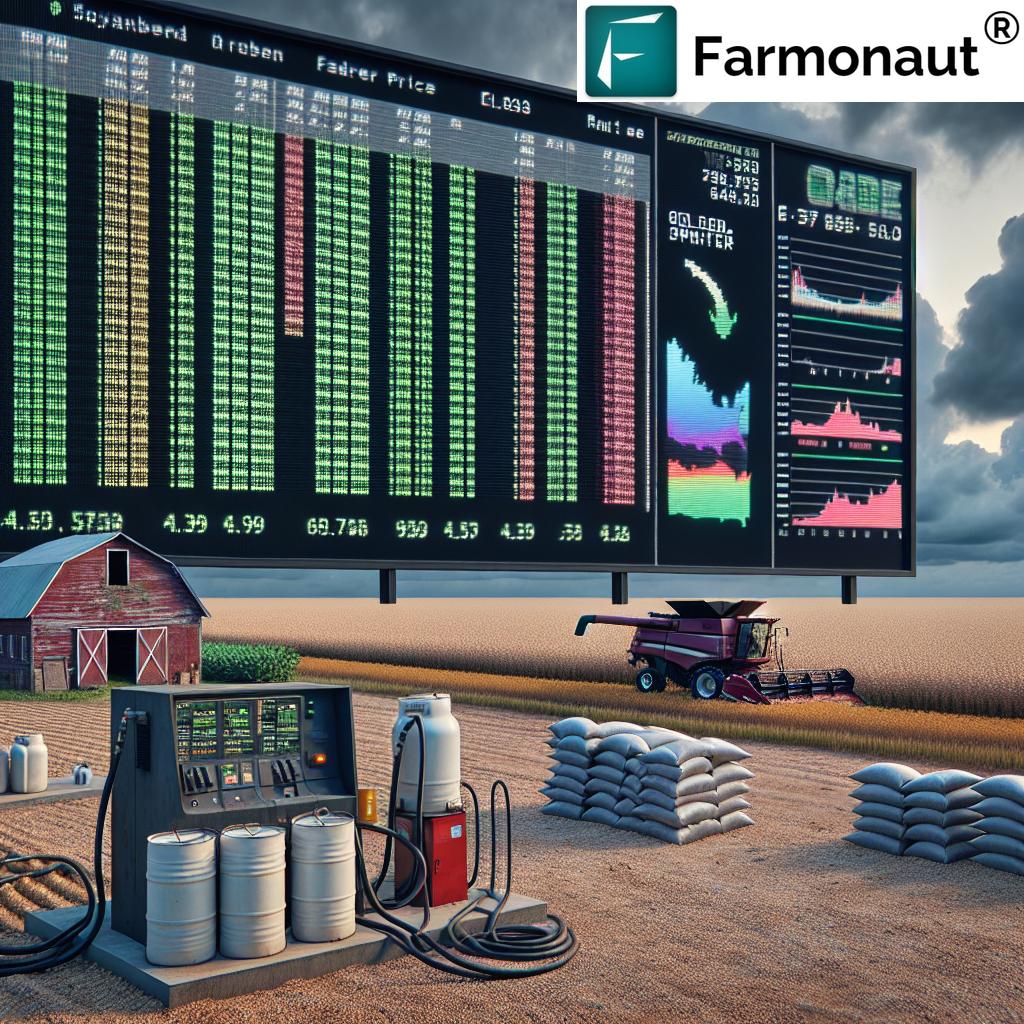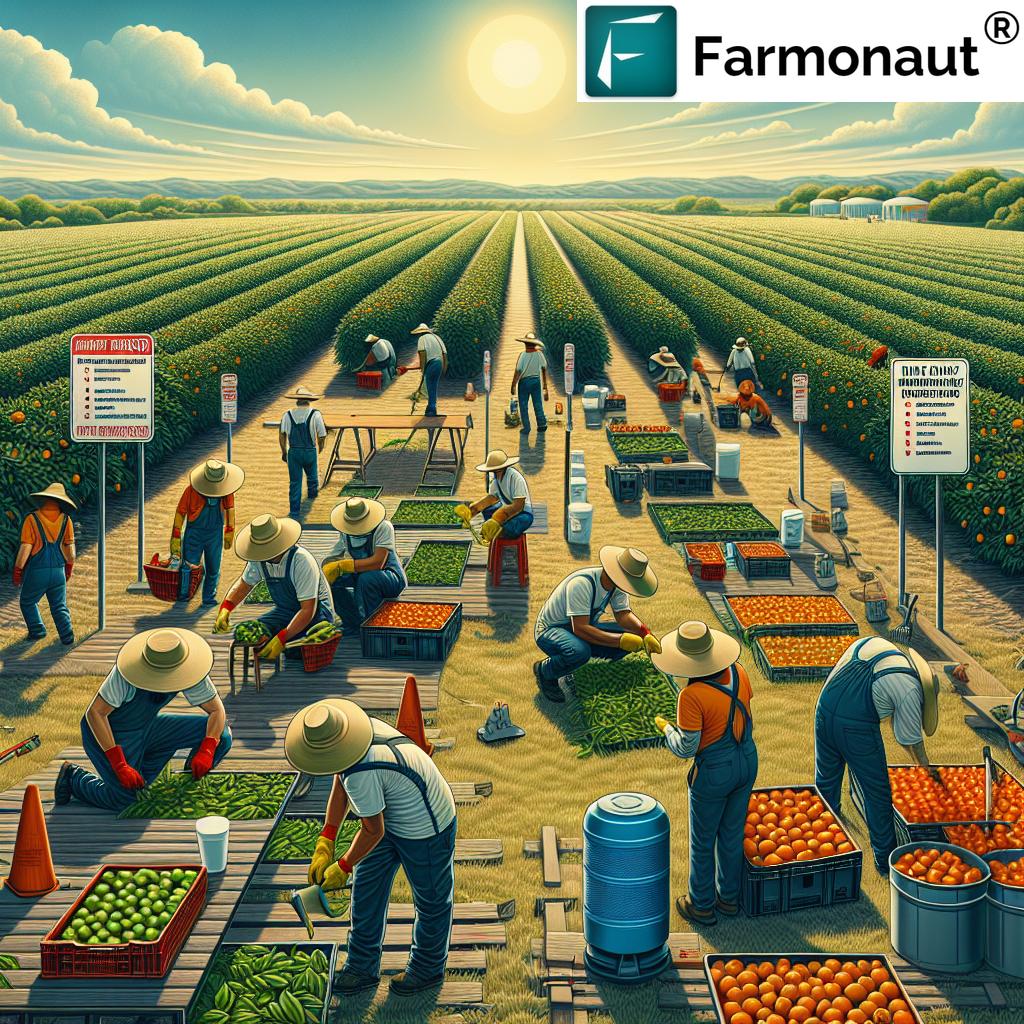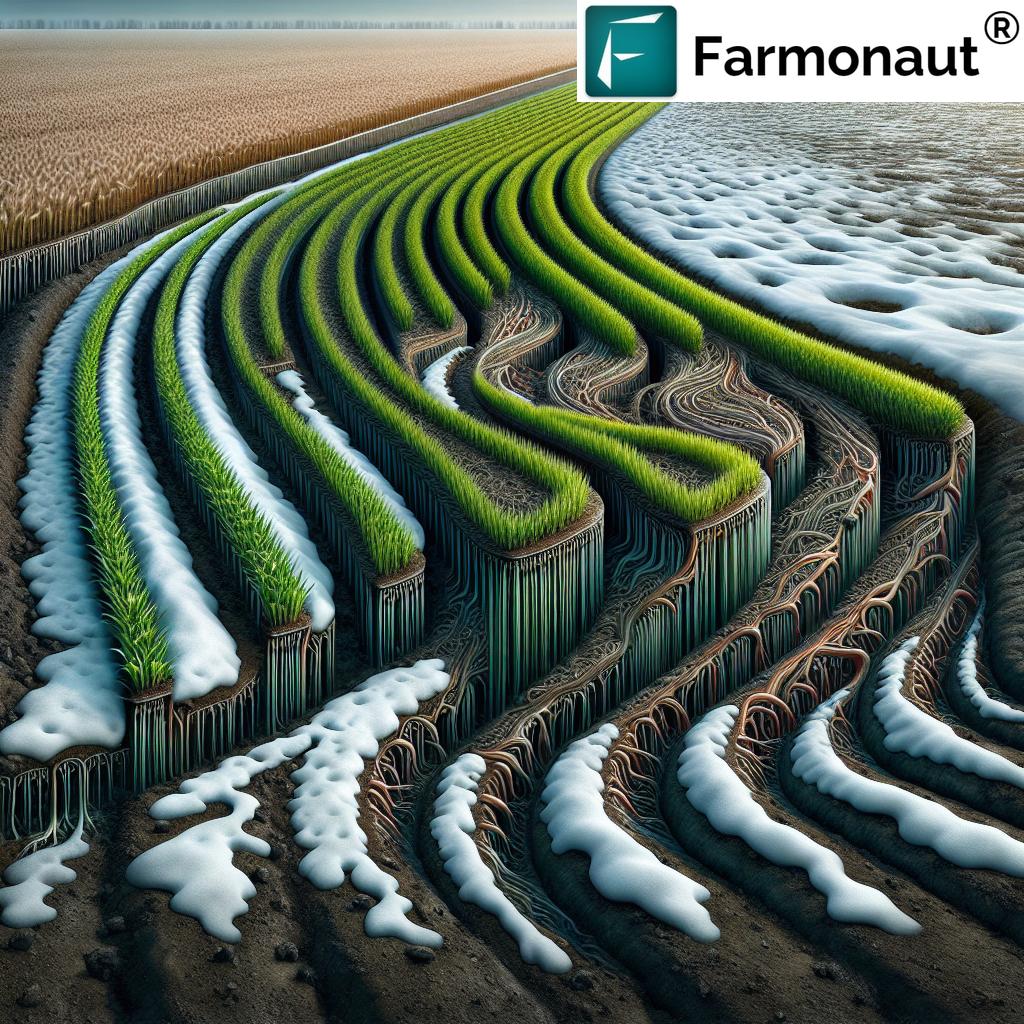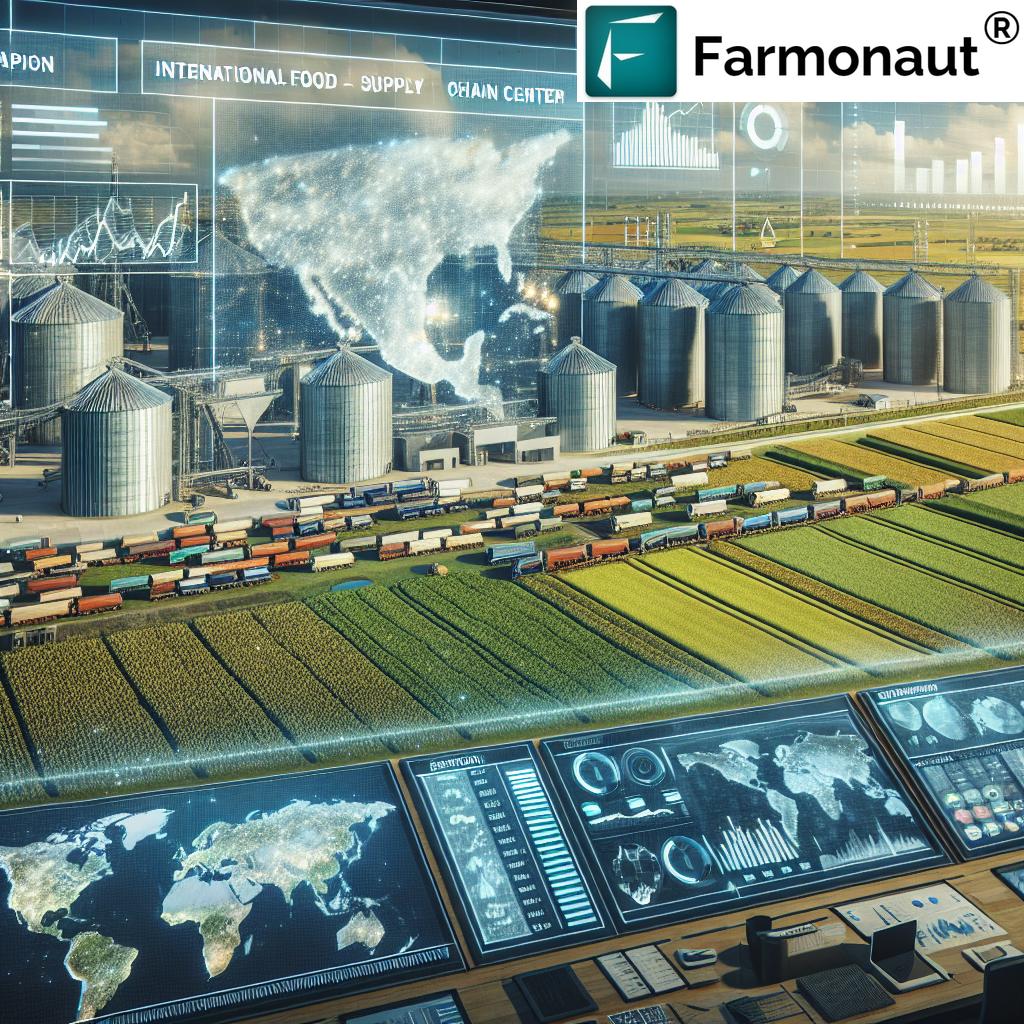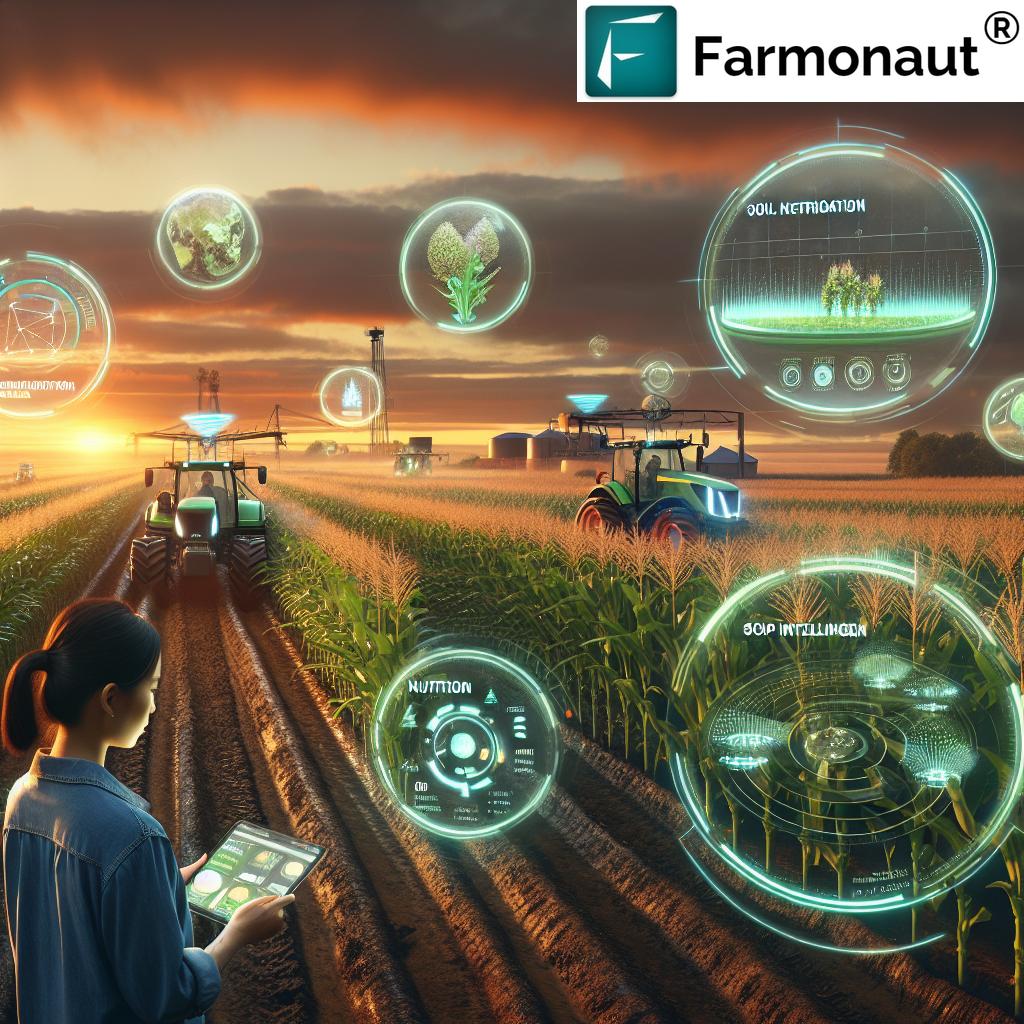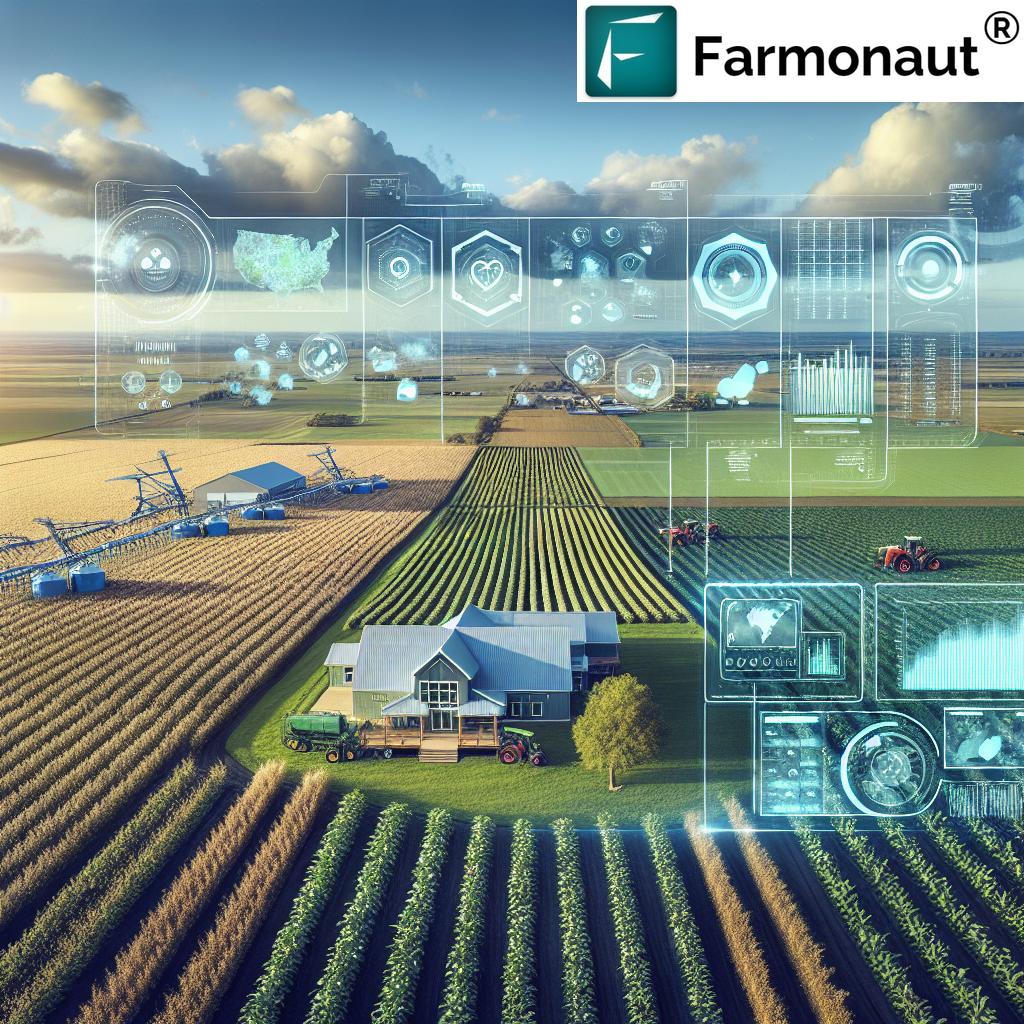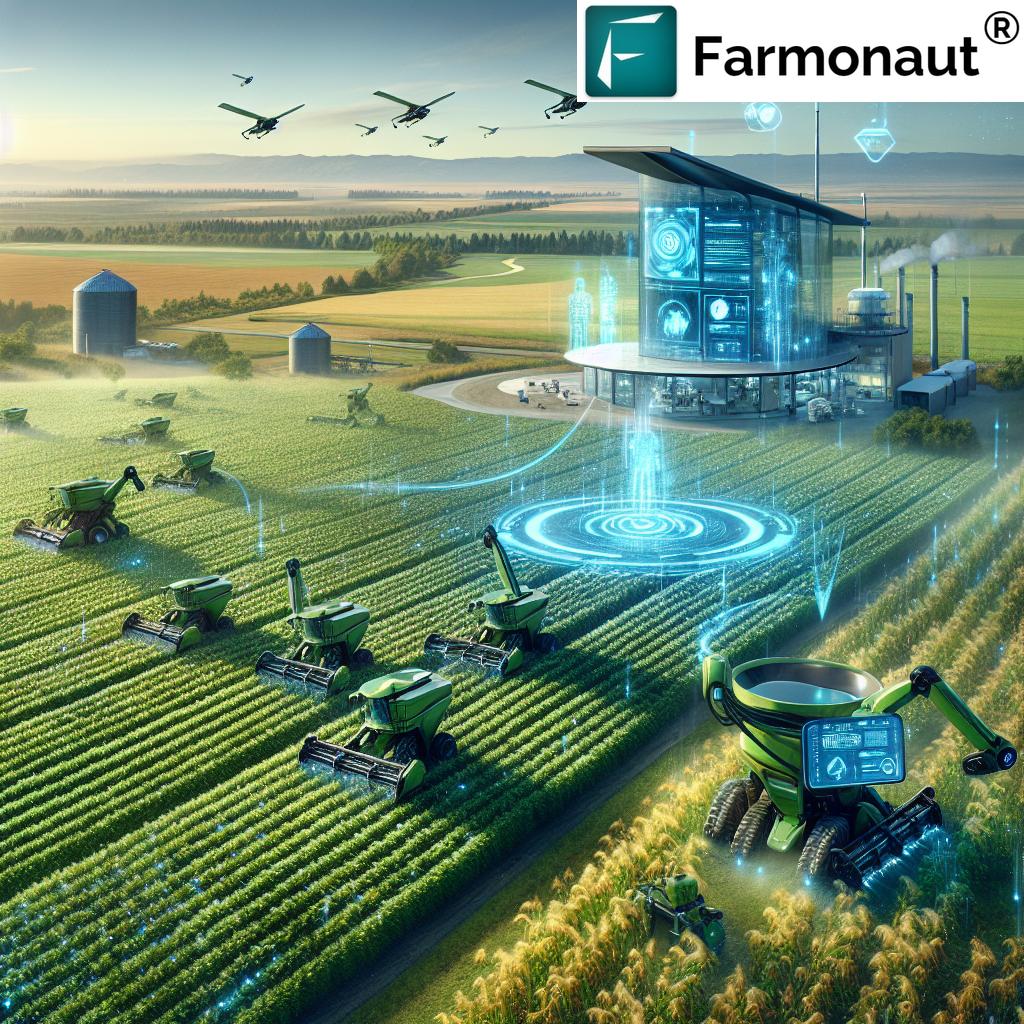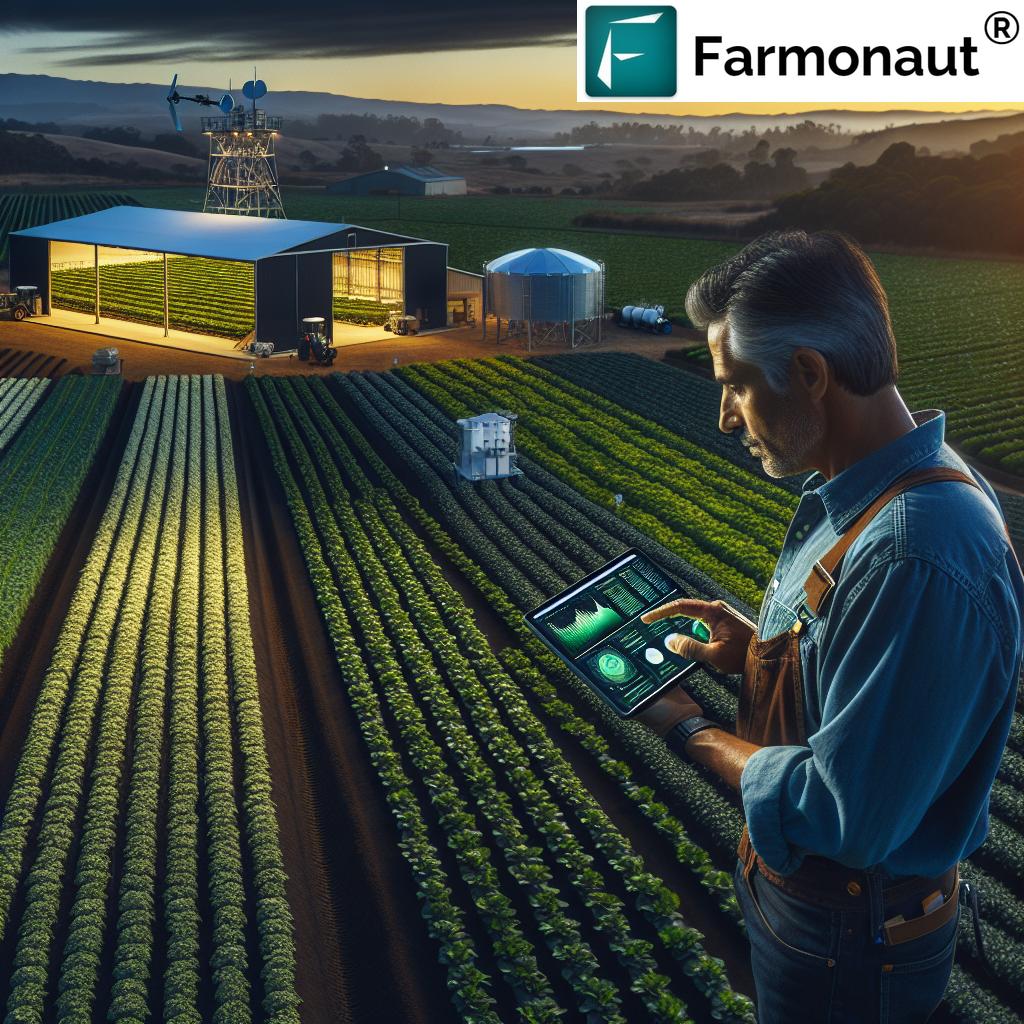Revolutionizing Soil Science: Farmonaut’s Precision Agriculture Techniques for Sustainable Farming in America
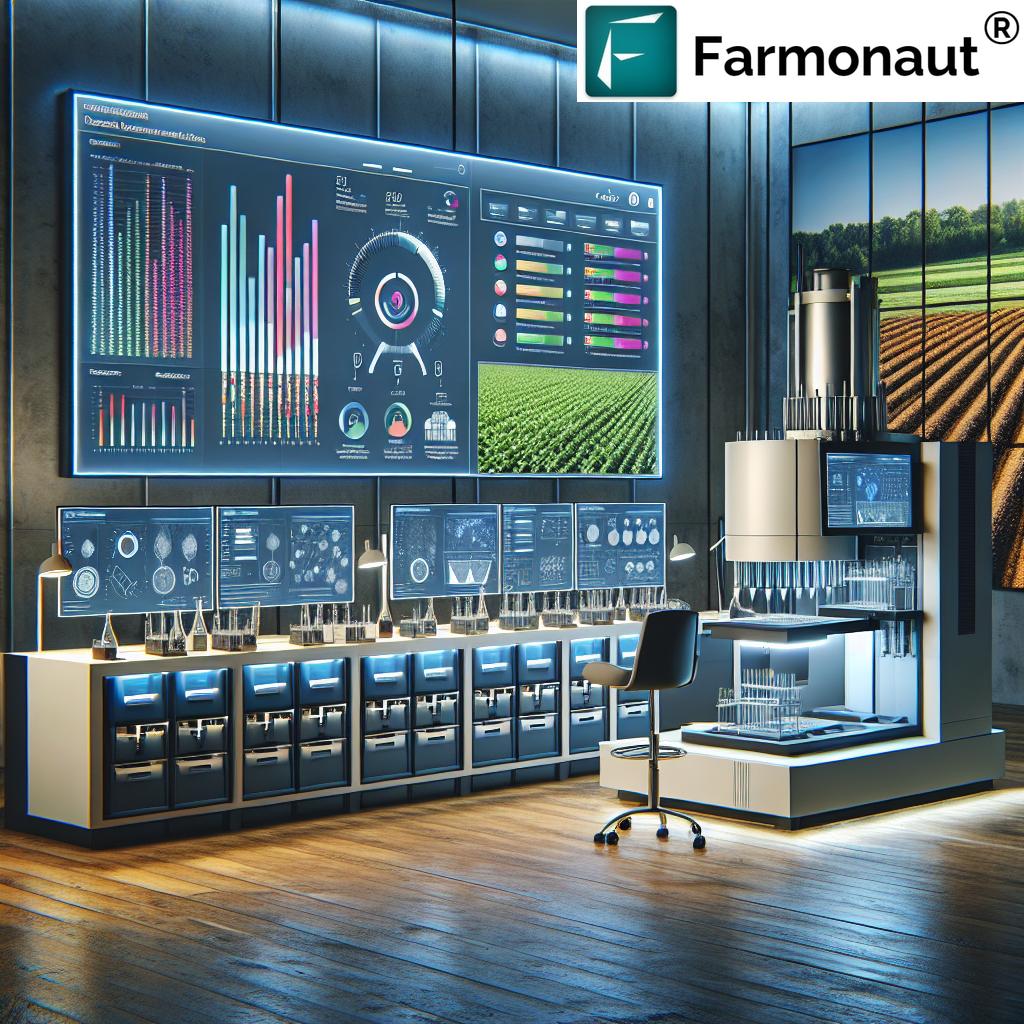
“Over 50% of soil science awards recognize long-term contributions to sustainable agriculture and precision farming techniques.”
In the ever-evolving landscape of American agriculture, the integration of cutting-edge technology and sustainable practices has become paramount. As we delve into the world of soil science awards and professional development, we find ourselves at the forefront of a revolution in farming techniques. This blog post explores how the industry recognizes distinguished service, fosters innovation in soil health management, and embraces the latest agricultural technology innovations shaping the future of farming in America.
At the heart of this transformation lies the crucial role of precision agriculture techniques and climate-smart farming solutions. Companies like Farmonaut are leading the charge, providing farmers with advanced tools to implement research-backed methodologies for improved crop management and soil conservation. Let’s embark on a journey through the soil science community’s efforts to promote excellence and advance sustainable practices, while highlighting the synergy between academic recognition and practical application in the field.
The Significance of Soil Science Awards in Advancing Sustainable Agriculture
Soil science awards play a pivotal role in recognizing and promoting excellence within the agricultural research community. These accolades not only honor individual achievements but also serve as beacons guiding the industry towards more sustainable and efficient farming practices.
- Fostering Innovation: Awards incentivize researchers and practitioners to push the boundaries of soil science, leading to breakthroughs in sustainable agriculture.
- Knowledge Dissemination: Recognition of outstanding work helps spread best practices and innovative techniques throughout the farming community.
- Attracting Talent: Prestigious awards draw new talent to the field, ensuring a continuous influx of fresh ideas and perspectives.
As we explore the landscape of soil science awards, it’s important to note how they align with the goals of precision agriculture providers like Farmonaut. These companies offer solutions that complement the research being recognized, bridging the gap between academic findings and practical application in the field.
Notable Soil Science Awards and Their Impact
Let’s examine some of the most prestigious awards in the field of soil science and their significance in promoting sustainable agriculture practices:
| Award Name | Awarding Organization | Eligibility Criteria | Recognition Type | Impact on Sustainable Agriculture |
|---|---|---|---|---|
| Distinguished Service Award | Soil Science Society of America | Long-term contributions to soil science | Lifetime Achievement | Highlights careers dedicated to advancing sustainable soil management practices |
| Early Career Award | American Society of Agronomy | Outstanding contributions within 7 years of obtaining Ph.D. | Rising Star Recognition | Encourages innovative research in precision agriculture and soil health |
| Soil Science Society Fellowship | Soil Science Society of America | Exceptional professional achievements and service | Professional Honor | Promotes collaboration and knowledge sharing in sustainable farming techniques |
These awards not only celebrate individual achievements but also serve as catalysts for advancing the field of soil science and sustainable agriculture. They align closely with the mission of companies like Farmonaut, which aim to make precision agriculture accessible and affordable for farmers across America.
The Rigorous Nomination Process for Soil Science Society Memberships and Awards
The process of nominating and selecting recipients for soil science awards is meticulous and comprehensive, ensuring that only the most deserving individuals and projects receive recognition. This rigorous approach maintains the prestige of these honors and guarantees that they truly represent the pinnacle of achievement in the field.
- Nomination Submission: Colleagues or institutions submit detailed nominations highlighting the candidate’s contributions to soil science.
- Committee Review: A specialized committee evaluates each nomination based on predetermined criteria.
- Board Approval: The society’s board of directors reviews and approves final selections.
- Peer Recognition: Winners are celebrated at annual meetings and through society publications.
This process not only identifies exceptional contributors but also fosters a culture of excellence within the soil science community. It encourages professionals at all levels to strive for innovation and impact in their work, ultimately benefiting the broader agricultural sector.
Professional Development in Soil Science: Nurturing the Next Generation
Professional development plays a crucial role in advancing the field of soil science and ensuring a steady pipeline of skilled practitioners. From undergraduate students to seasoned professionals, there are numerous opportunities for growth and learning within the soil science community.
- Webinars and Online Courses: Accessible learning opportunities for professionals to stay updated on the latest research and techniques.
- Certifications: Specialized programs that validate expertise in specific areas of soil science and precision agriculture.
- Scholarships: Financial support for students pursuing degrees in soil science and related fields.
- Mentorship Programs: Connecting experienced professionals with emerging talent to foster knowledge transfer and career guidance.
These professional development initiatives are crucial for maintaining a vibrant and innovative soil science community. They ensure that practitioners at all levels have the knowledge and skills necessary to implement cutting-edge sustainable agriculture practices, including those enabled by precision agriculture technologies like Farmonaut’s satellite-based solutions.
Explore Farmonaut’s API for advanced agricultural data integration
The Intersection of Environmental Science Careers and Sustainable Agriculture
As the focus on sustainable agriculture intensifies, we’re witnessing a growing intersection between environmental science careers and traditional farming practices. This convergence is creating exciting opportunities for professionals who can bridge the gap between ecological principles and agricultural productivity.
- Agroecologists: Specialists who apply ecological concepts to agricultural systems, optimizing both productivity and sustainability.
- Soil Conservationists: Experts in preserving soil health and preventing erosion, crucial for long-term agricultural viability.
- Precision Agriculture Specialists: Professionals who leverage technology to optimize resource use and minimize environmental impact in farming.
- Sustainable Farm Managers: Individuals who implement holistic approaches to farm management, balancing economic and environmental considerations.
These career paths highlight the evolving nature of agricultural professions and the increasing demand for interdisciplinary skills. As companies like Farmonaut continue to innovate in the agritech space, they create new opportunities for professionals to apply their environmental science expertise in practical, impactful ways within the agricultural sector.
“Farmonaut’s agritech solutions have improved crop management efficiency by up to 30% for American farmers implementing research-backed methodologies.”
Agricultural Technology Innovations: Shaping the Future of Farming
The rapid advancement of agricultural technology is revolutionizing how we approach farming in America. These innovations are not only improving efficiency and productivity but also contributing significantly to the sustainability of agricultural practices.
- Satellite-Based Crop Monitoring: Utilizing remote sensing technology to assess crop health and optimize resource allocation.
- AI-Powered Predictive Analytics: Leveraging artificial intelligence to forecast crop yields, pest outbreaks, and optimal harvesting times.
- Precision Irrigation Systems: Implementing smart water management solutions to conserve resources and improve crop yields.
- Drone Technology: Employing unmanned aerial vehicles for detailed field mapping and targeted crop treatment.
Farmonaut’s suite of precision agriculture tools exemplifies how these technological innovations are being integrated into practical farming solutions. By providing farmers with real-time data and actionable insights, these technologies are enabling more informed decision-making and sustainable resource management.
Access Farmonaut’s API Developer Documentation for integration details
Climate-Smart Farming Solutions: Adapting to Environmental Challenges
As climate change continues to pose significant challenges to agriculture, the development and implementation of climate-smart farming solutions have become increasingly crucial. These approaches aim to increase agricultural productivity while adapting to and mitigating the effects of climate change.
- Drought-Resistant Crop Varieties: Developing and cultivating crops that can thrive in water-scarce conditions.
- Carbon Sequestration Techniques: Implementing farming practices that enhance soil’s capacity to store carbon, reducing greenhouse gas emissions.
- Integrated Pest Management: Utilizing ecological approaches to pest control, reducing reliance on chemical pesticides.
- Agroforestry Systems: Combining trees and shrubs with crop cultivation to improve land productivity and environmental resilience.
These climate-smart solutions are at the forefront of sustainable agriculture, and their implementation is often supported by precision agriculture technologies. Farmonaut’s platform, for instance, provides valuable data on soil moisture levels and weather patterns, enabling farmers to make climate-smart decisions about crop selection and resource management.
The Role of Soil Health Management in Sustainable Agriculture
Soil health is fundamental to sustainable agriculture, and its management is a critical aspect of modern farming practices. Proper soil health management not only improves crop yields but also enhances the resilience of agricultural systems to environmental stresses.
- Cover Cropping: Planting specific crops to protect and enrich the soil during off-seasons.
- Reduced Tillage: Minimizing soil disturbance to preserve soil structure and organic matter.
- Crop Rotation: Alternating crops to improve soil fertility and break pest cycles.
- Organic Matter Management: Incorporating compost and other organic materials to enhance soil structure and nutrient content.
Advanced soil health management practices are often guided by data-driven insights provided by precision agriculture tools. Farmonaut’s satellite-based monitoring system, for example, can help farmers track soil moisture levels and vegetation health, informing decisions about irrigation and fertilization that promote optimal soil health.
The Impact of Agricultural Research Recognition on Industry Practices
Recognition of outstanding agricultural research through awards and honors plays a vital role in shaping industry practices. This recognition not only celebrates individual achievements but also accelerates the adoption of innovative techniques and technologies across the farming community.
- Validating New Approaches: Awards lend credibility to novel farming methods, encouraging wider adoption.
- Directing Research Focus: Recognition influences future research directions, aligning academic efforts with industry needs.
- Facilitating Knowledge Transfer: Awarded research often receives broader dissemination, speeding up the implementation of new practices.
- Attracting Funding: Recognized researchers and projects are more likely to secure funding for further studies and practical applications.
This synergy between research recognition and industry adoption is crucial for advancing sustainable agriculture. It creates a feedback loop where academic insights inform practical solutions, which in turn guide future research priorities. Companies like Farmonaut play a key role in this ecosystem by translating research findings into accessible tools for farmers, bridging the gap between scientific discovery and on-farm implementation.
Precision Agriculture Techniques: Maximizing Efficiency and Sustainability
Precision agriculture techniques represent a paradigm shift in farming, offering unprecedented levels of accuracy and efficiency in crop management. These methods leverage advanced technologies to optimize resource use, minimize environmental impact, and enhance overall farm productivity.
- Variable Rate Technology: Adjusting the application of inputs like fertilizers and pesticides based on precise field data.
- GPS-Guided Machinery: Using satellite navigation to improve the accuracy of planting, spraying, and harvesting operations.
- Soil Sampling and Mapping: Creating detailed soil maps to inform targeted management strategies.
- Yield Monitoring: Tracking crop yields in real-time to identify field variability and inform future management decisions.
Farmonaut’s platform exemplifies how precision agriculture techniques can be made accessible to farmers of all scales. By providing satellite-based crop health monitoring and AI-driven advisory services, Farmonaut enables farmers to implement precision agriculture practices without the need for expensive on-site equipment.
The Future of Sustainable Farming in America: Trends and Predictions
As we look to the future of sustainable farming in America, several key trends and predictions emerge, shaped by technological advancements, environmental concerns, and changing consumer preferences:
- Increased Adoption of AI and Machine Learning: More farms will leverage artificial intelligence for predictive analytics and automated decision-making.
- Expansion of Vertical Farming: Urban areas will see growth in vertical farming operations, maximizing space efficiency and reducing transportation needs.
- Integration of Blockchain Technology: Enhanced traceability in the food supply chain will become standard, improving food safety and consumer trust.
- Focus on Regenerative Agriculture: Practices that not only sustain but improve soil health and biodiversity will gain prominence.
- Precision Fermentation and Cellular Agriculture: Alternative protein sources produced through biotechnology will complement traditional farming.
These trends highlight the ongoing transformation of American agriculture towards more sustainable and technologically advanced practices. Companies like Farmonaut are at the forefront of this evolution, providing the tools and insights necessary for farmers to adapt to these changes and thrive in the future agricultural landscape.
Conclusion: Embracing Innovation for a Sustainable Agricultural Future
As we’ve explored throughout this blog post, the landscape of American agriculture is undergoing a profound transformation. The convergence of soil science awards, professional development initiatives, and cutting-edge agricultural technologies is driving the industry towards a more sustainable and efficient future.
The recognition of excellence through soil science awards not only honors individual achievements but also sets the standard for innovation in the field. These accolades, coupled with robust professional development programs, ensure that the soil science community remains at the forefront of sustainable agriculture practices.
Precision agriculture techniques, exemplified by platforms like Farmonaut, are playing a pivotal role in translating scientific research into practical, on-farm solutions. By providing farmers with access to satellite-based monitoring, AI-driven insights, and other advanced tools, these technologies are democratizing access to sustainable farming practices.
As we look to the future, the continued integration of climate-smart farming solutions and the adoption of regenerative agriculture practices will be crucial in addressing the challenges posed by climate change and resource scarcity. The soil science community, supported by innovative agritech companies, will be instrumental in developing and implementing these solutions.
In conclusion, the revolution in soil science and precision agriculture techniques is not just about improving farm productivity; it’s about ensuring the long-term sustainability of our food systems and the health of our planet. By embracing these innovations and continuing to recognize and support excellence in the field, we can build a resilient and sustainable agricultural future for America and beyond.
Frequently Asked Questions (FAQ)
- Q: What are the main benefits of precision agriculture techniques?
A: Precision agriculture techniques offer numerous benefits, including optimized resource use, increased crop yields, reduced environmental impact, and improved farm profitability through data-driven decision-making. - Q: How does Farmonaut contribute to sustainable farming practices?
A: Farmonaut provides satellite-based crop health monitoring and AI-driven advisory services, enabling farmers to implement precision agriculture practices that optimize resource use and improve sustainability. - Q: What role do soil science awards play in advancing sustainable agriculture?
A: Soil science awards recognize excellence in research and practice, encourage innovation, and help disseminate knowledge about sustainable farming techniques throughout the agricultural community. - Q: How can farmers access Farmonaut’s precision agriculture tools?
A: Farmers can access Farmonaut’s tools through their web application, mobile apps available on Android and iOS, or by integrating Farmonaut’s API into existing farm management systems. - Q: What are some emerging trends in sustainable farming for the future?
A: Emerging trends include increased adoption of AI and machine learning, expansion of vertical farming, integration of blockchain for traceability, focus on regenerative agriculture, and development of alternative protein sources through biotechnology.



